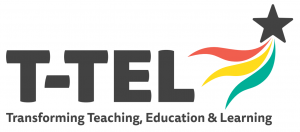“There was a notion that the school only belonged to the headmaster and the teachers. After the engagement we saw that we were also very important and responsible for the school. Their issues are our issues—we are committed to supporting them at all times.”- Obore Kofi Yankosor Gariba II, Paramount Chief of Tatale-Sanguli.
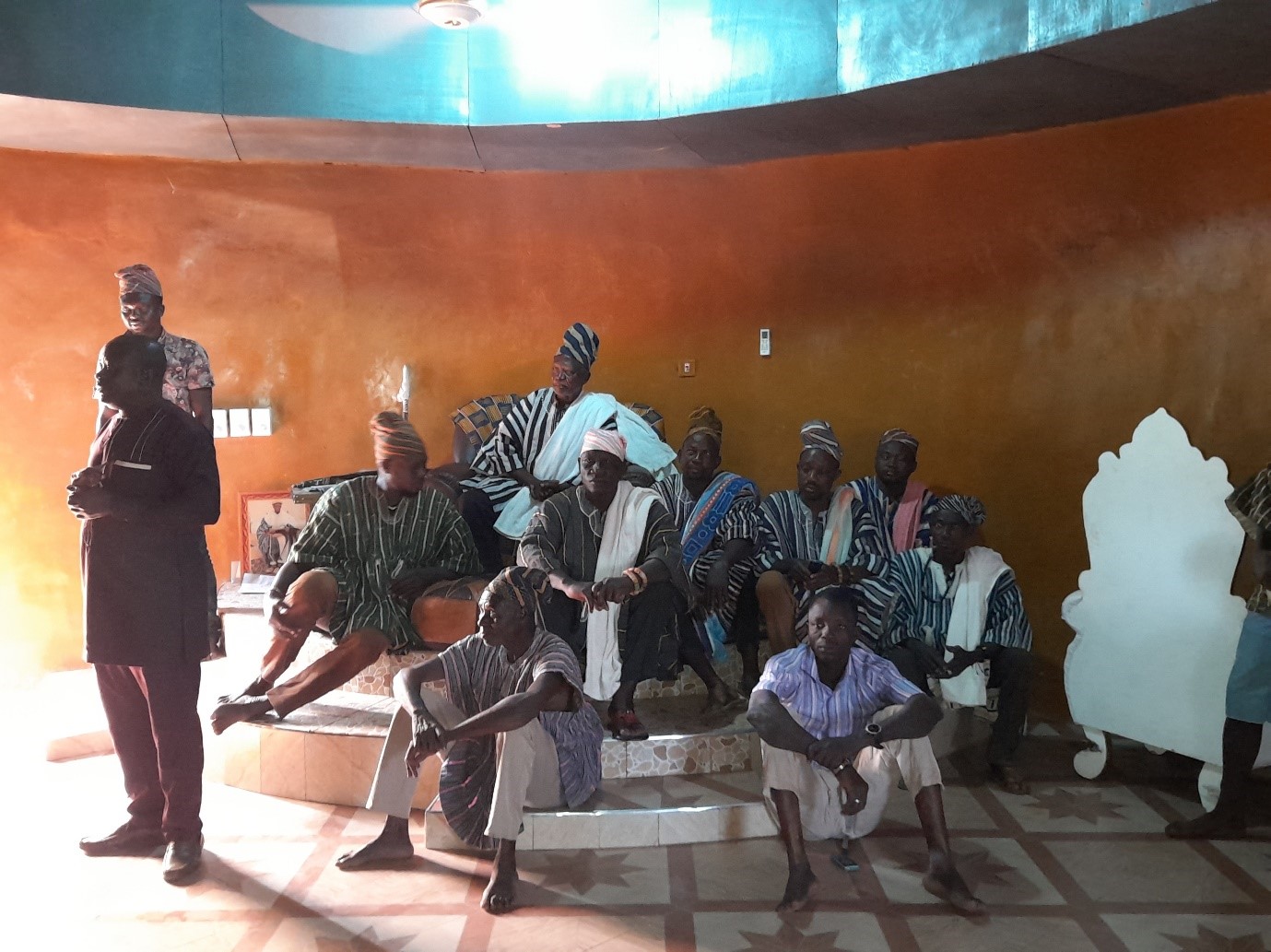
Paramount chief of Tatale Sanguli and his sub-chiefs
‘Managing for Learning’ is a new approach which is being implemented by the Ghana Education Service (GES) and the Ministry of Education in 12 secondary schools across the country as part of the Secondary Education Transformation Programme (SETP) supported by T-TEL and the Mastercard Foundation.
Managing for Learning is based on the principle that schools and the stakeholders involved in their management, operations and governance are best placed to understand the issues inhibiting student attainment and that, with support and facilitation, they can take the lead in owning and developing solutions to their challenges. Traditional leaders, community members and parents are all important stakeholders and Managing for Learning places them at the centre of the change process.
Tatale E.P Agric Senior High School is located in the town of Tatale in the Northern Region of Ghana, about three hours’ drive east of Tamale. The school, which was established in 1998, is a mixed boarding school with approximately 750 students. It was one of 47 schools across the country which were invited to apply to be part of the Secondary Education Transformation Programme (SETP) by the Ministry of Education and GES in 2021. The school submitted a successful application and was very pleased to be one of only 12 schools nationwide which was selected for SETP.
SETP began with three-days of stakeholder engagement and problem-solving sessions in December 2021. As part of this stakeholder engagement process, the school invited the paramount chief, parents and community members to a series of consultative meetings to discuss issues affecting student achievement and strategize ways to improve learning.
As a retired educationist, enskinned as the paramount chief of Tatale-Sanguli, Obore Kofi Yankosor Gariba II was delighted to be part of the process as it enabled the community to work with the school to identify issues and develop solutions.
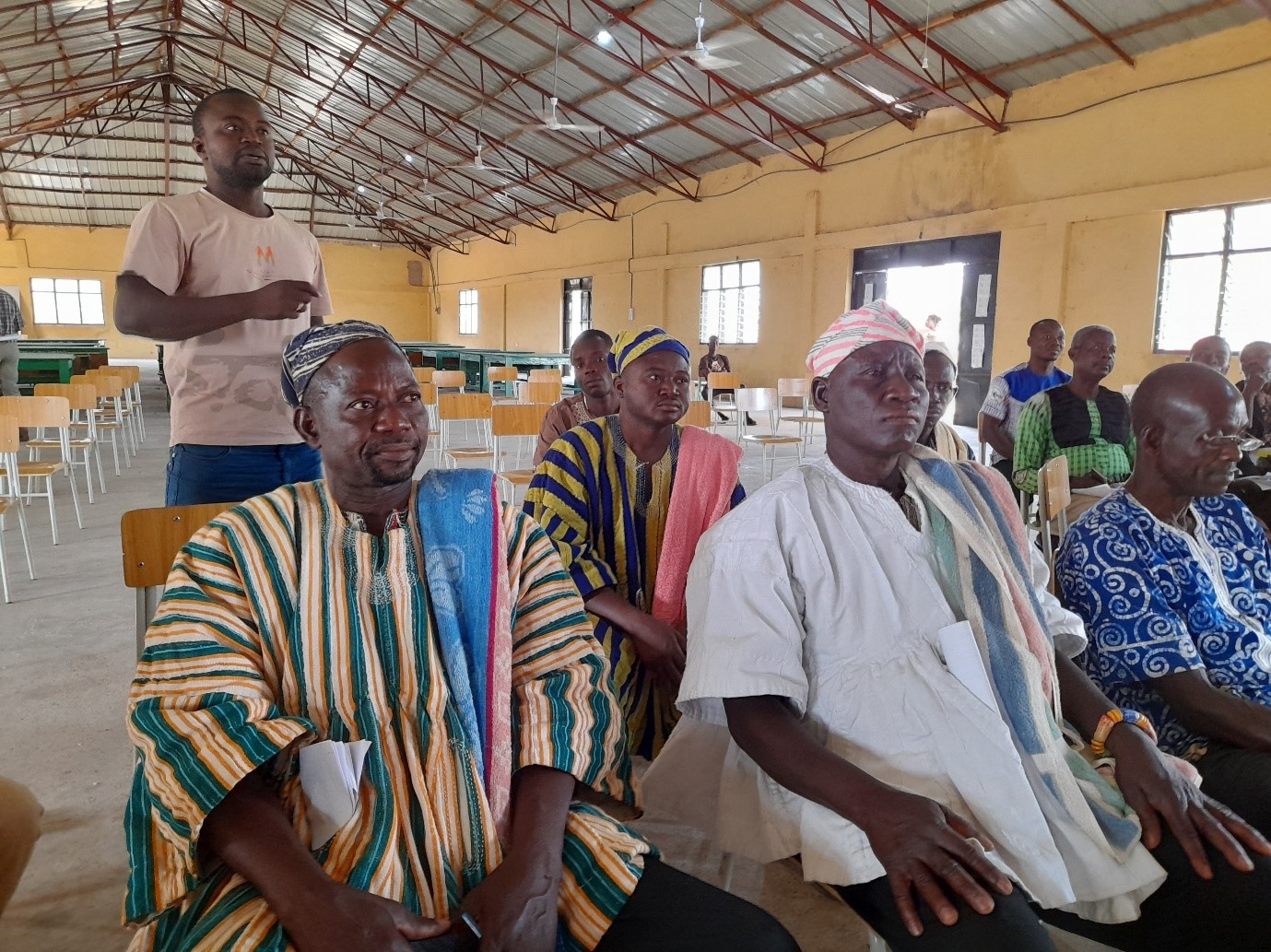
Delegates of the Paramount Chief of Tatale-Sanguli at an initial briefing session on the Managing for Learning approach
These engagement sessions saw five different groups of participants- school management and board, teachers, non-teaching staff, students, parents and community members- developing responsibility matrixes and participatory maps of the stakeholders involved in running the school and assessing how well they were currently playing their respective roles. Each group of participants then identified what they felt were the most significant issues in the school and ranked these using a process called pairwise ranking.
Then the different stakeholder groups came together in a plenary session to agree collectively as a school community on the priority issues facing the school. They then broke into their separate groups again to develop issue trees which helped them to understand the root causes of the problems that they were facing. They then used an impact grid to identify those factors that would have both a high impact on student attainment and which the school had high influence over and would be possible to implement.
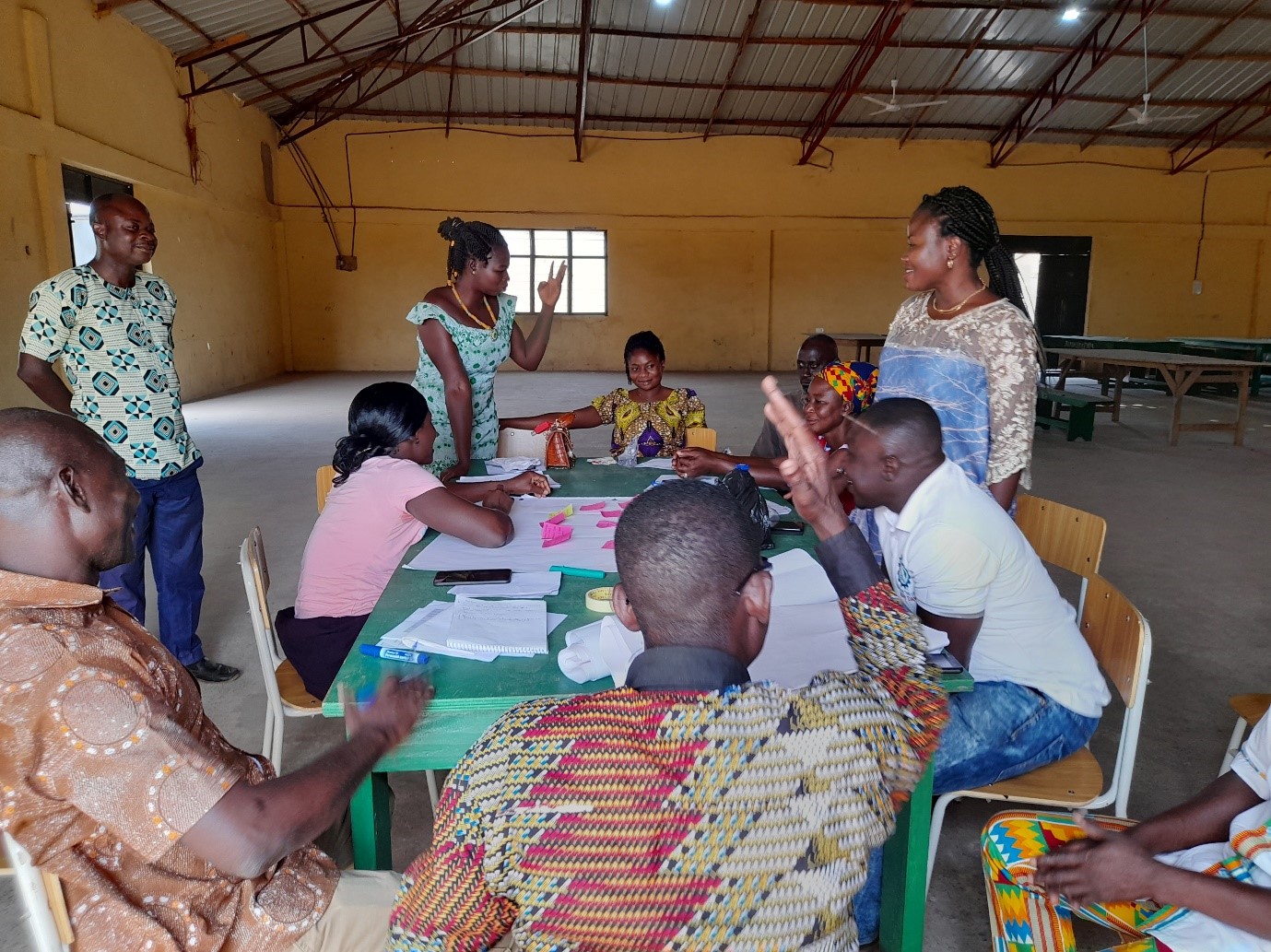
A stakeholder group discussing and identifying issues that affect student achievement
These high-impact, very-possible issues and actions were then used by the school community to develop a School Improvement Plan.
Tatale E.P. Agric Senior High School’s stakeholders collectively identified:
- Teacher and Student Indiscipline including absenteeism, inadequate preparation of lessons and an ineffective disciplinary committee.
- Inadequate infrastructure including lack of maintenance culture in the school; and inadequate financial resources from the MoE, IGF and parental support.
- Lack of motivation and appreciation of teachers by school management. Factors causing lack of motivation included the absence of certain teaching and learning materials, award schemes, welfare packages and toilet facilities for both teachers and students.
After conducting further research, the school community came together again in January 2022 to finalize their School Improvement Plan. This Plan has five objectives, the first two of which are:
- To improve the quality of leadership and management through the provision of structured and accredited leadership training for School Management and School Boards.
- To improve the quality and relevance of teaching and learning through the introduction of regular, structured Professional Learning Community (PLC) sessions for all teachers.
Both of these objectives will be fully funded by GES and T-TEL and will be implemented in collaboration with the other 11 participating SETP schools. The final three objectives in Tatale E.P. Agric Senior High School’s Improvement Plan are unique to the school and are:
- To improve the level of discipline among staff and students through a well-structured monitoring plan, strengthen the existing disciplinary structures and sustained parental engagement programmes.
- To improve and maintain the infrastructural needs of the school through the collaborative efforts by all key stakeholders.
- To put in place mechanisms to motivate both staff and students to enhance effective teaching and learning.
The school will be provided with GHS 100,000 over the next twelve months to implement these three objectives. The school community will be supported to conduct regular problem solving meetings to ensure that implementation is on track and they will have to report on a monthly basis to GES and the Ministry of Education on progress.
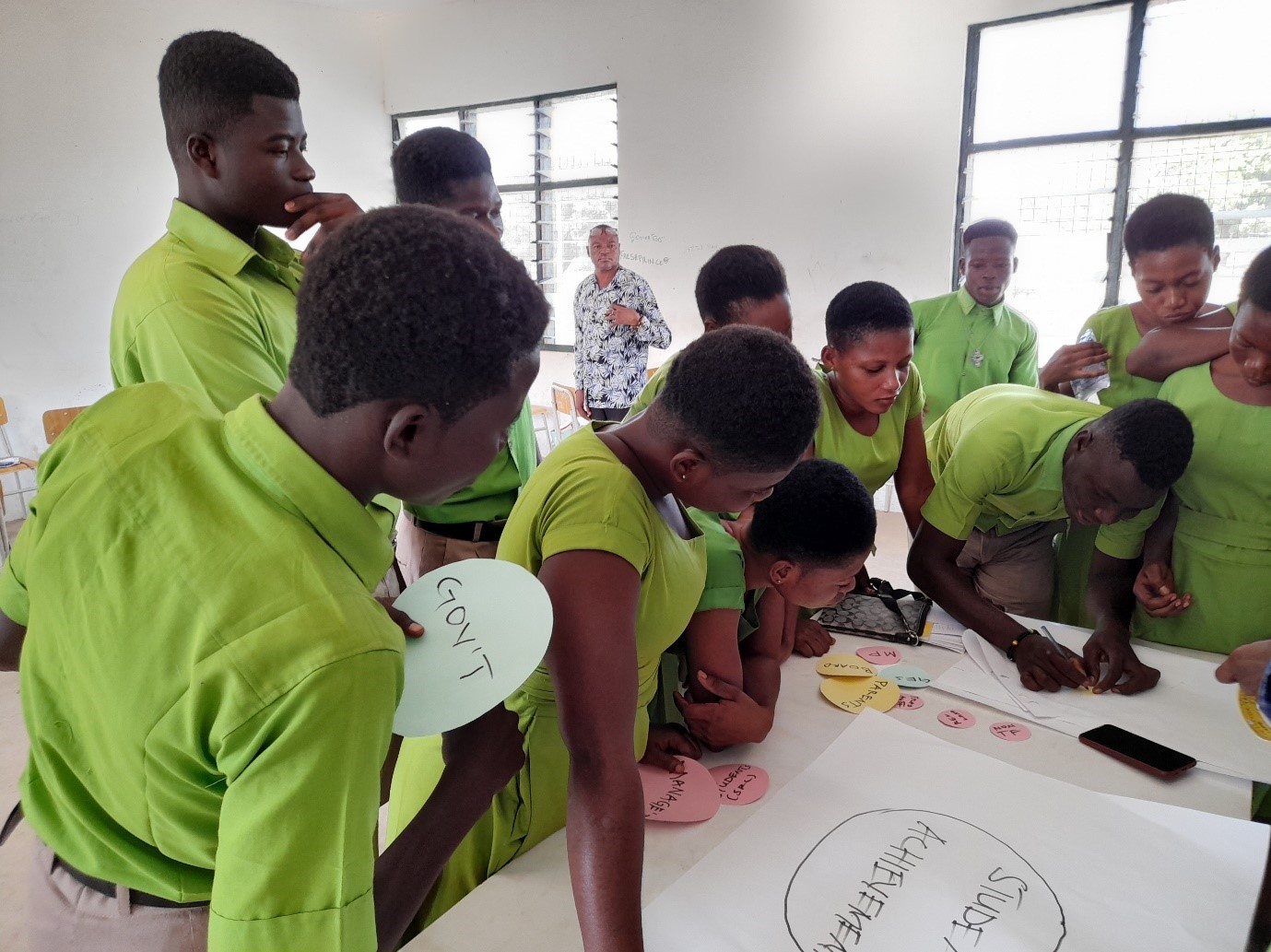
Students during stakeholder mapping session
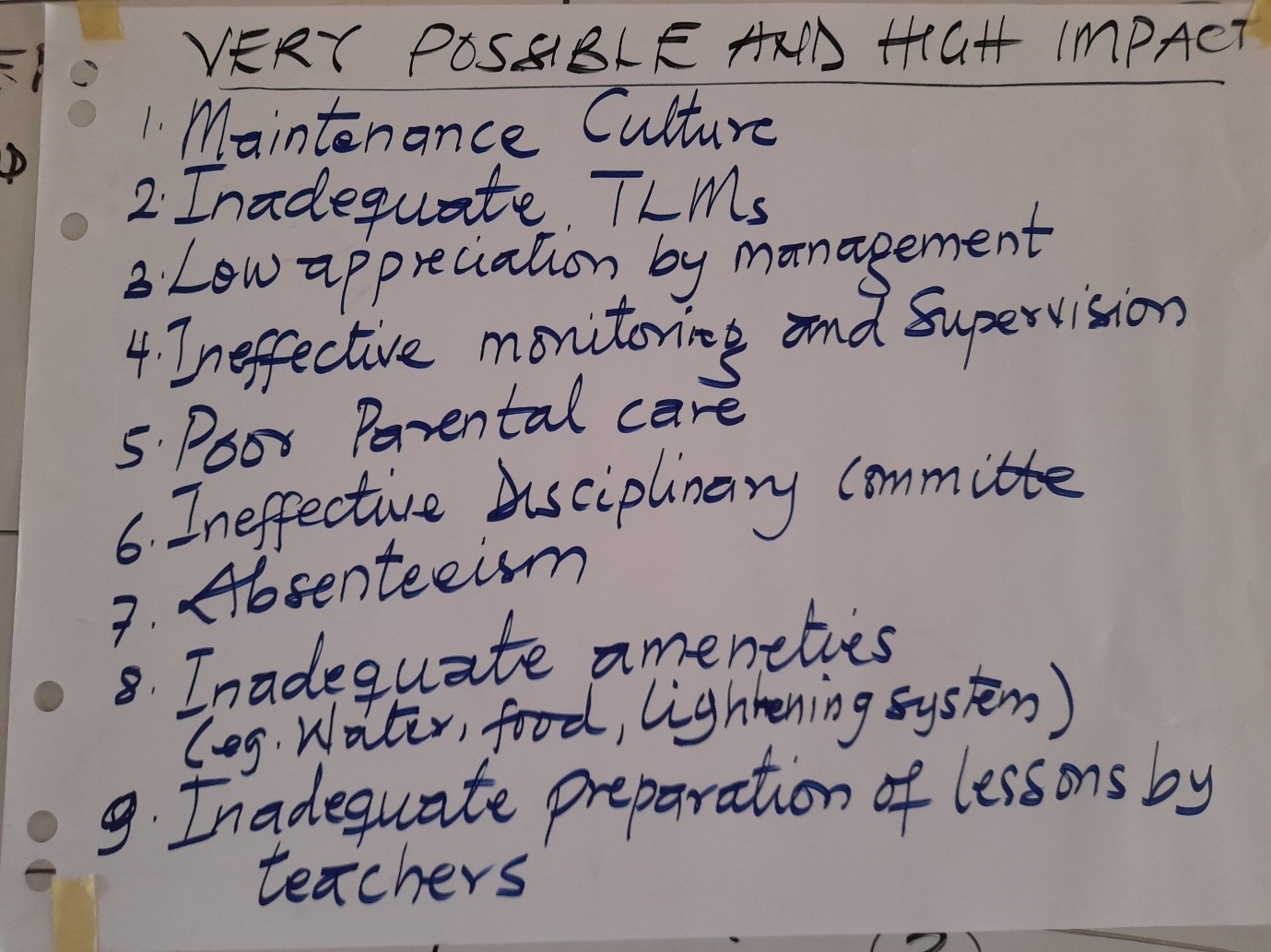
List of issues identified by a stakeholder group
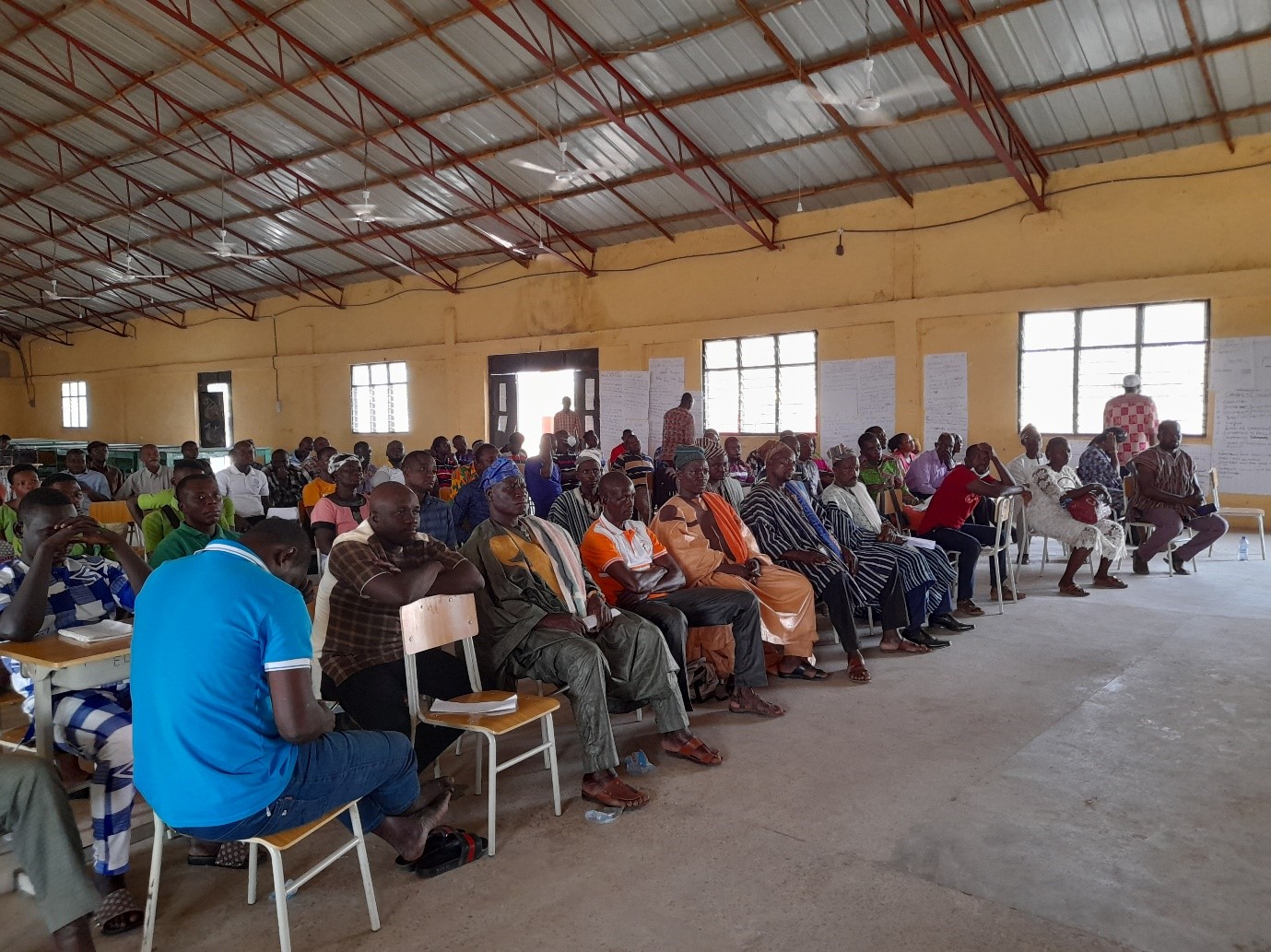
Cross-section of stakeholders
There was some excellent feedback from participants who shared their experiences at the various levels of engagement. Community members expressed their commitment to supporting the school. There was a sense of responsibility — everyone agreed on what the priorities are, and everyone is involved in the process to support and improve the school.
” I am happy our concerns are now being addressed, and I feel happy to be part of the process” – Teaching staff
“As a student, I was worried management would take decisions without us… I am so glad that that did not happen because we were part of the [decision-making] process” – Female student.
